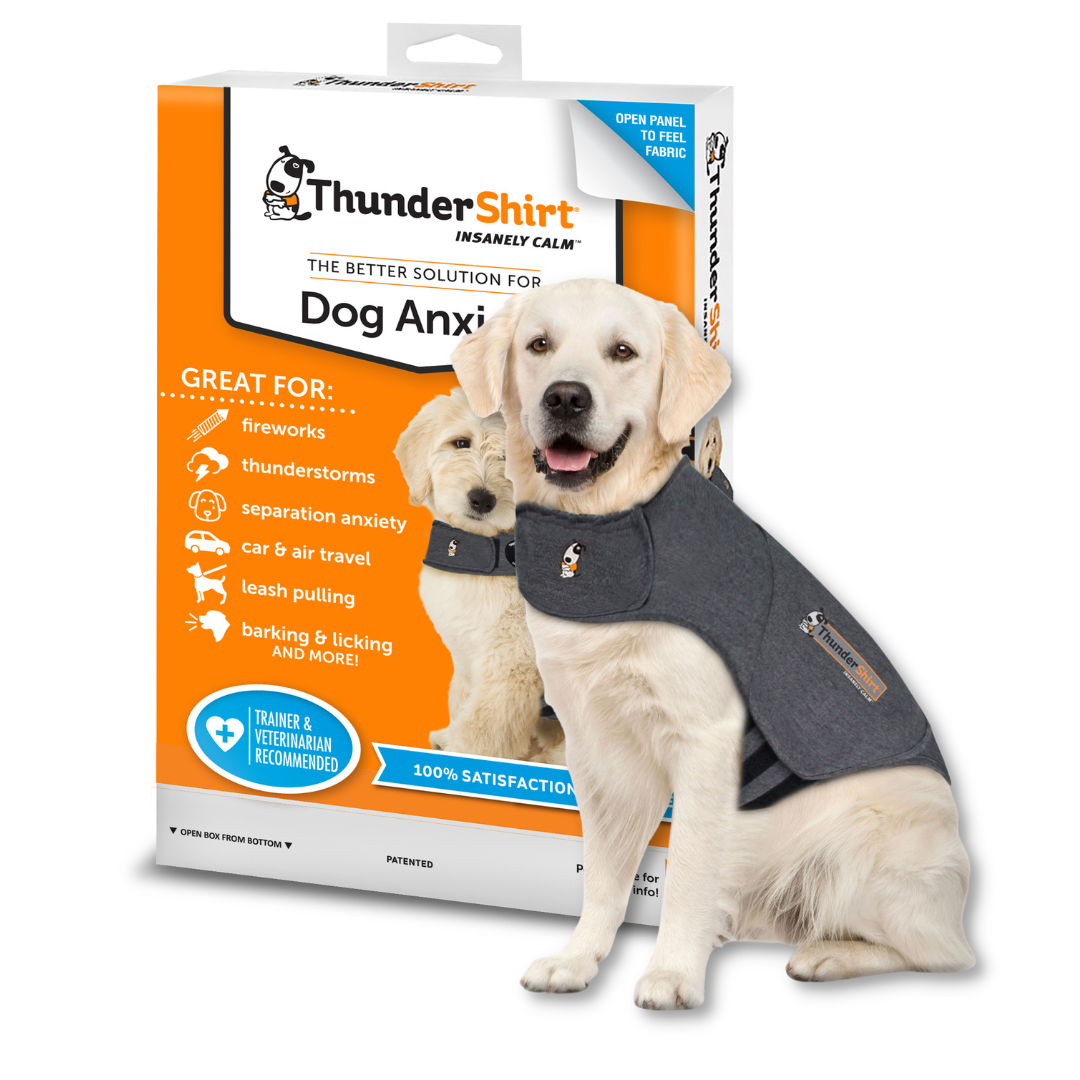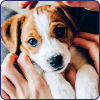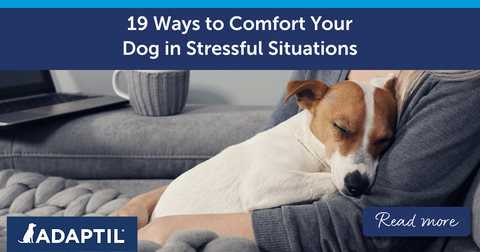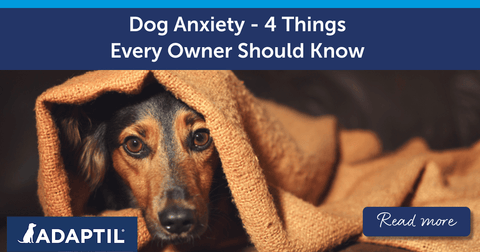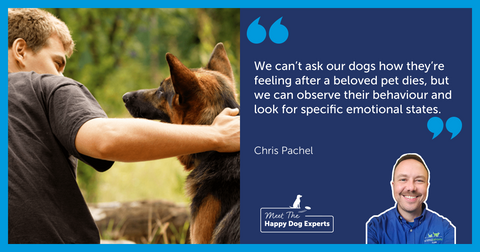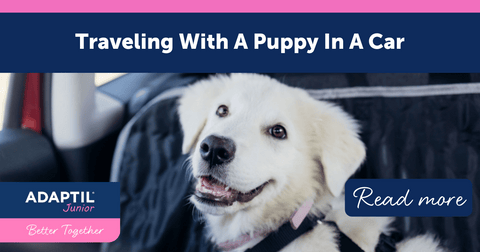Want to subscribe to our blog?

How do we teach dogs to toilet outside the home? Happy Dog Expert
Written by Angela Gonzalez, published on April 18, 2023
Happy Dog Expert, Angela Gonzalez, explains how to teach dogs to toilet outside, discover more information from our Experts here.
When we acquire a dog, one of our first concerns is often that they are housetrained as soon as possible, as this is an important skill and requirement for a happy coexistence for dogs and people.
Toileting, or elimination behaviour includes urination and defecation; produced as waste from food metabolism. Improper elimination problems are a frequent reason for consulting a vet, so preventing this problem is crucial for both animal welfare and for a good relationship between a pet parent and their dog.
Tips on how to teach the puppy to toilet properly should be discussed in the pup's first visits to their vet.
- During the first 15 days of life, the urination and defecation of puppies is stimulated by their mother, who licks the perianal area of ‚Äã‚Äãthe young and ingests their faeces.
- At 3 weeks, puppies are able to eliminate themselves and will do so outside of the resting area.
- At 5 weeks they begin to select substrates and specific locations.
- At 9 weeks they show a predilection for the selected areas.
We can take advantage of this natural tendency to avoid eliminating in the nest, using learning techniques to teach dogs to toilet in areas that we consider suitable.
When we teach a dog, especially a puppy to toilet outside, we must bear in mind that it is a process that requires patience, routine and dedication, so it is advisable to adopt a puppy when you have the time available to devote to housetraining (and other training your pup needs at this time, such as socialisation).
How to teach your puppy to toilet outside?
Encourage your pup to toilet in the right place
Reward their successes and try to avoid mistakes as far as possible (so that the dog does not get used to eliminating in the wrong place and does not acquire a preference for this area):
- Choose the location you wish your puppy to use outside, making sure that it is easily accessible and away from distractions (dogs, people ...).
- Encourage your puppy to go to this place and reward them when they toilet there. It works well to use a verbal reward and a small piece of food.
- After your puppy toilets, spend some time with them outside. This helps to build a positive association.
- Initially take your puppy to the chosen location every hour. This can be extended over time. Allow enough time for your puppy to do what they need to do if you are walking to the location make sure it will not be such a long walk that your puppy needs to go again when they get home. If your puppy didn't toilet when you took them out, check for signs that they want to go on your return inside 10-30 minutes later. If your puppy wants to toilet, go outside with them again.
- Take your puppy out when they are most likely to want to toilet:
- After playing, exercising or sleeping
- 15-20 minutes after eating
- Before going to sleep.
Establish a routine (and be consistent with your schedule)
- Try and feed your puppy at the same time each day.
- Leave the food for your puppy for about 20 minutes and then remove the leftovers.
- Give your pup their last meal of the day 2-3 hours before they will go to sleep.
- Try to ensure that walks are always at the same time.
Prevent mistakes
- Supervise your puppy during the day.
- Try to recognise the signs that your puppy wants to toilet, such as walking in circles, sniffing the ground, walking with their back legs tucked under.
- If you can't keep an eye on your puppy, consider using a dog crate (of the correct size) or dog pen for a short period of time as long as your puppy is acclimated to the crate.
Avoid punishment
It is best to ignore your puppy when they are toileting in the wrong place, whether or not we catch them "red-handed". Instead, reward the times when your pup toilets in the right place. Punishment can result in your puppy learning that toileting in your presence is a bad thing, or that toileting in the house should only be done when you are not there.
Proper removal of odours
The persistence of odours in the house can encourage your puppy to toilet inside. It is advisable to use enzymatic or biological detergents when cleaning up previous accidents inside to eliminate odours (avoid cleaning with bleach or ammonia).
Use of the newspaper or something similar
- If it is not possible to regularly take your puppy to the selected location for toileting, you can teach them to use a litter box or an area covered with newspaper instead. As for training your puppy to use an outside area, take them to the desired area regularly.
- Place the paper or box away from where your puppy sleeps, eats or drinks, but in a quiet area where they won't be disturbed.
- Combine with training them to use the selected area outside and gradually remove the paper or box as your puppy begins to be able to wait until they are outside.
These tips can also be used for adult dogs with inappropriate elimination issues and usually form the basis of the management of this problem under the guidance of your clinical behaviourist and veterinarian.
However, remember that if your puppy has a hard time being housetrained, or if your adult dog suddenly begins to toilet in your home, it is important to contact your veterinarian because there could be a medical reason for this.
{{cta('ef7d3da5-6377-4bf3-9a17-71cd3861ac19')}}
Following our expert tips will help to ensure your bond with your dog goes from strength to strength.
Make sure to join our community for weekly advice from our dog behaviour experts as well as product offers and competitions.
 Related Posts
Related Posts
Legal notice The information collected is intended for Ceva Santé Animale and the group in order to manage your requests. This information can be shared with service providers in order to organize their management. In accordance with the General Data Protection Regulations, you have the right to access, rectify and limit the processing of your data. You can also, in certain cases, object to the processing, withdraw your consent and request the deletion and portability of your data. For any request in relation to your personal data, please visit this page.




















